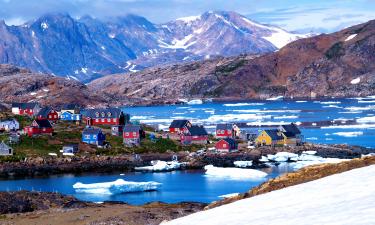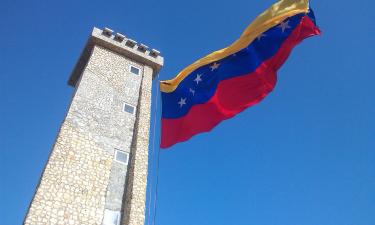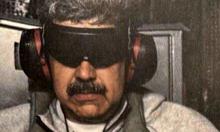Muscovites Concerned About Amplified Muslim Prayers
In the fall of 2010, three mass Muslim holidays will be held in Moscow: Cultural and charitable action, Ramadan Tent, Uraza-Fitr (9 September) and Eid al-Fitr (16 November). The corresponding decree was signed by Moscow Mayor Yuri Luzhkov, GZT.Ru reported.

In this regard, the Moscow city government intends to ask the Federal State Unitary Enterprise “Moscow City Broadcasting Network” to provide installation of sound amplifiers on cars to broadcast festive prayers. According to the deputy mayor of Moscow Sergey Baidakov responsible for monitoring the execution of this order, everything will be strictly within the law, and will not interfere with the life of Muscovites.
"Moscow is one of the largest religious centers in the country, and freedom of conscience is the fundamental principle of the Russian Constitution,” the official said. “And it is only natural that worshipers have the right to satisfy their spiritual needs. In addition, a significant number of worshipers come to these holidays. For example, last year's collective prayers during the Uraza-Fitr holiday gathered nearly 50 thousand people, and not everyone could hear the spiritual leader of Muslims. Therefore, we decided to ask Moscow Broadcasting network for help. Sound enhancement will occur exclusively during the day and only during the broadcast holiday prayers in the Moscow Cathedral Mosque. So Muscovites will not be inconvenienced."
Russia Today: Ramadan kicks off amid rise in Islamophobia
This document itself specifies three locations of amplification systems: Central, Western and North-East administrative districts. This means that amplification of prayers will be conducted for at least three mosques. However, two of them mentioned in the decree found it difficult to say whether public address system was used before and how it will be used now.
This news has provoked heated debate. “Mr. Luzhkov, apparently, is very far from the people and the speakers! I do not like it when the mullah yells across Moscow and Russia in a language other than Russian!” say comments on the website of GZT.Ru. Members also wondered why Christians have to listen to Muslim prayers. “I think it would be better if those who came to live in our country studied ORTHODOXY in schools!” a reader commented.
On 27 and 28 November of last year, during the holiday of Kurban Bayram, Moscow residents witnessed mass slaughter of sacrificial animals. Stormy negative reaction to this event caused the mayor's office to announce the development of the so-called “Code of a Muscovite,” a peculiar set of rules for those arriving to the capital.
In particular, migrants are not recommended to cut sheep in the yards and grill kebabs on their balconies. They also should not walk around the city wearing national attire and speak their native language.
Officials stressed that the “Code of a Muscovite” would not be binding, and does not violate human rights. But human rights groups and representatives of many Diasporas felt that the initiative was dangerous and insulting, and its authors were accused of chauvinism and racism.
Orthodox priests accepted the idea positively. Chairman of Moscow Ossetian communities Valery Kabolov also considers the “Code of a Muscovite” an important and even necessary document. He thinks that people have the right to wear national attire when it does not look like a challenge to the public order, and speak their language when surrounded by those who understand it.
Journalists and bloggers, in turn, began competing in wit regarding things to be included in the set of rules. For example, the “alternative” Code of a Muscovite proposed by journalist Tatiana Malkina cynically derides typical features of the capital residents that include indifference to other people's problems, aggression, and incivility.
GZT.Ru
Subscribe to Pravda.Ru Telegram channel, Facebook, RSS!




